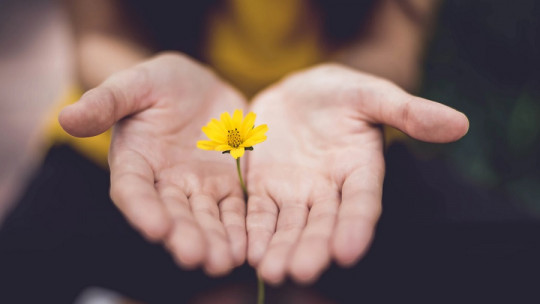More than once it has happened to us that we feel that the words “make a lump in our throat” This can occur in various situations; perhaps, when we consider that what we have to say can hurt others and we prefer to remain silent. Other times, not being able to express our emotions could have causes that are more difficult to distinguish.
This is where personal beliefs about the world and ourselves can determine how we judge ourselves when we want to express an emotion. Taking this into account, let’s see why it is so important to learn to express our emotions and what are the reasons why we might have difficulties doing so.
Why do we need to express our emotions?
The idea that human beings are social beings is widespread; and this thesis applies perfectly when we want to highlight the relevance of expressing our emotions. We cannot think of our lives apart from others, but we need interaction with others to function in the different contexts in which we operate daily, such as family, work or school.
And not only that, the expression of emotions has also allowed us to get to where we are right now. According to Darwin, the stability of a species is determined by its reproductive success and its ability to survive, so it is necessary for it to have the ability to emit a series of clear signals to transmit relevant information to the rest of the individuals in the same species. species. It is in the field of signals where emotional expressions come into play. Are They have a high adaptive value since they allow the behavioral coordination necessary to transmit rapid and accurate information to other individuals in the group.
Let’s think about it in a threatening context, like a hunting situation. How difficult it would be to get food if we couldn’t understand the directions and expressions of others! Furthermore, the interpretation of emotions is often considered universal. Despite small differences, research has shown that there is broad agreement between different cultures in the interpretation of basic emotions such as fear, anger, joy, sadness, surprise and disgust, whose recognition reaches 70% in terms of similarity.
In other words, We need to express our emotions because doing so is useful and functional We are predisposed to understand each other according to interpretations of the other’s basic emotions. This faculty, although we do not need it to hunt, is still useful in many circumstances such as solving a task with a work team, empathizing with a friend when he or she has a problem or reaching an agreement in a difficult conversation with a partner. Building solid interpersonal relationships is the basis of our lives, and to do so it is necessary not only to understand others but also to clearly teach what happens to us. But what if we have difficulties achieving it?
Possible reasons why I cannot express my emotions
Even knowing how important it is for human beings to express ourselves, this task may not be so easy. In fact, some actions such as crying can be particularly difficult for some people even though we all know the feeling of relief that we will get later thanks to the endorphins that our brain releases to calm the pain.
There is no single cause to determine the reasons why a person cannot express their emotions However, one of the possible underlying causes of difficulty expressing oneself is having a distorted belief. Beliefs integrate the contents of our cognitive schemas (that is, those networks of relationships between concepts that determine how we interpret reality) and, in some cases, they may be biased by our personal experience and learning history. That is, it is possible that the way we understand the world does not have a logical or useful correlation with reality. For example, when faced with an emotional state of sadness due to a breakup, a person could have difficulty evoking crying if the belief with which they interpret said experience is “men don’t cry.”
Closely linked to this, many people fail to express themselves because they feel overwhelmed by the dictates of their internal dialogue such as “look how pathetic you look” or “you are a burden to the other person, they will not understand you”; causing them, instead of expressing their emotion, to keep it to themselves. It can also cause a person to systematically avoid conflicts in order not to have to face a possible negative reaction from the other person, or in order to evade the ghost of internal dialogue that threatens them. Nevertheless, This strategy can have negative consequences, such as ending up communicating what is happening to you in an unclear or assertive way —what is often called “exploiting”— and putting the relationship with the other person at risk.
Learn to express your own emotions
Fortunately, it is possible to ask for help to learn to express your own emotions. Some strategies that could be aimed at are carrying out a restructuring of one’s beliefs or a change in internal dialogue; or, from other approaches, the defusion of difficult thoughts.
For this, there are multiple psychotherapies capable of helping the person release the obstacles that prevent them from expressing themselves clearly. Another aspect that a person who finds it difficult to show their emotions could work on and that has been widely researched in the scientific field is Emotional Intelligence. This ability means the ability to not only perceive one’s own emotional states and those of others, but also regulate them according to the particularities of each situation
Working with a therapist on the different dimensions that Emotional Intelligence involves, such as emotional attention, clarity of feelings and emotional repair, could be an excellent path to learning to express your emotions. It’s not easy, but there is always someone on the other side to ask for help.









